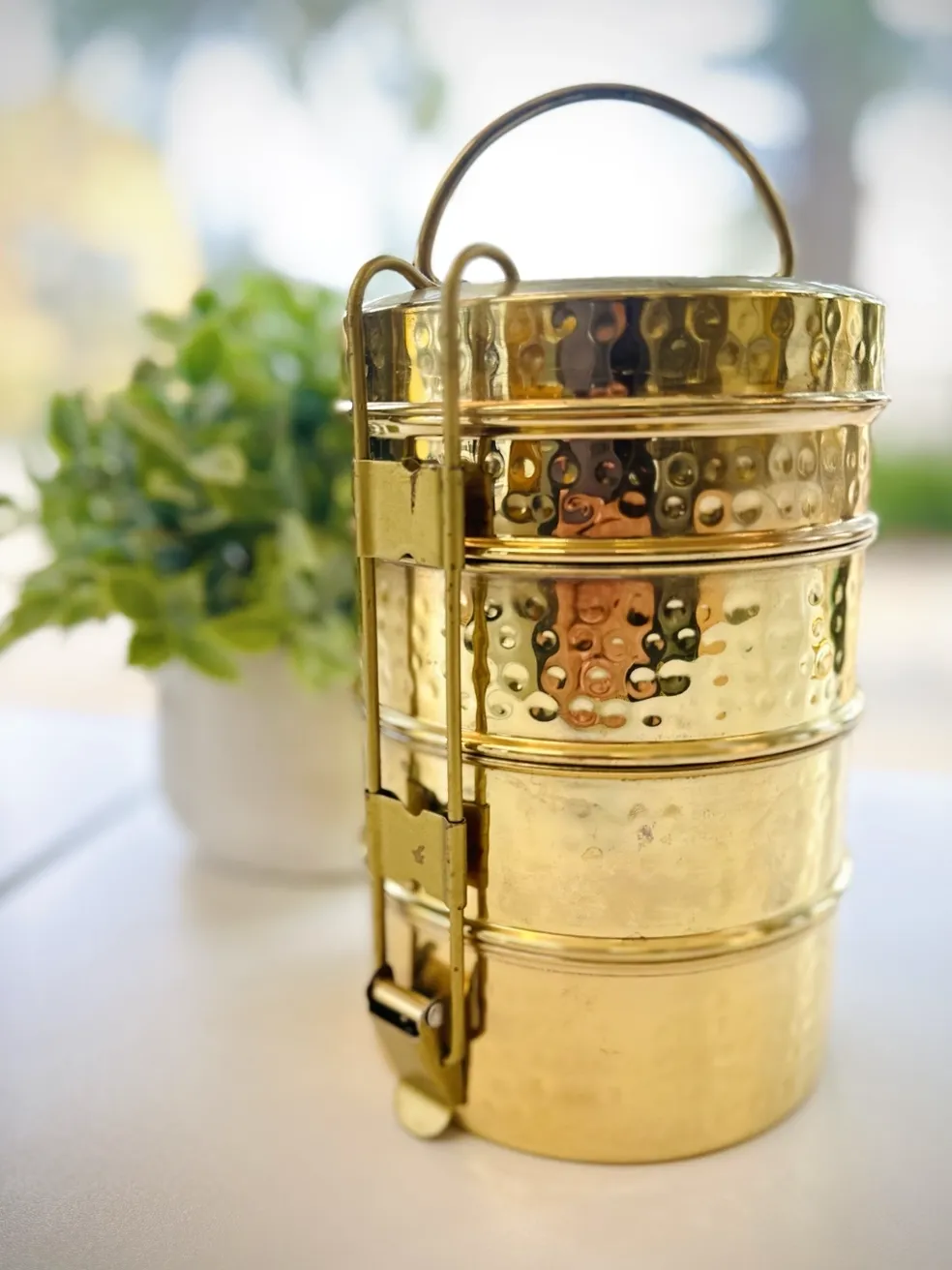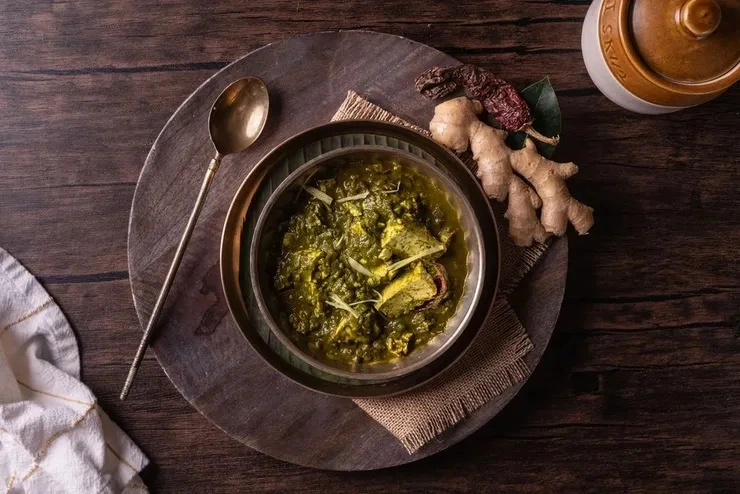(June 26, 2025) On a chilly San Jose evening, Sonu Kilam carefully packed a warm home-cooked Indian meal into a traditional steel tiffin carrier. She was delivering this dinner to a young Indian mother, far from her own family, who had just welcomed a newborn. In that humble act of sharing, Kilam wasn’t just filling a stomach – she was providing comfort, healing, and a taste of home. That simple gesture would soon blossom into Healthy Tiffin, an initiative reconnecting the Indian diaspora with the nourishing magic of their homeland cuisine.
Reviving the Indian Tiffin, Abroad
For Sonu Kilam, who moved from India to the U.S., food was much more than just something to eat — it was a strong connection to her culture and family. Living in California’s Bay Area, she noticed many Indians around her turning to frozen meals or greasy restaurant food because of their busy lives. While traditional Indian home cooking is known to be healthy, restaurant versions are often heavy, full of cream, oil, and salt. Sonu saw that people were drifting away from the kind of meals they grew up with — ones that were both nourishing and comforting. That’s when she felt a strong urge to do something: to bring back real, healthy Indian food for those living far from home.

Sonu Kilam
In 2024, Kilam answered that call by founding Healthy Tiffin in San Jose. She saw it “not as a business; it began as a calling,” driven by her belief that food is “preventive care, daily medicine, and an emotional bridge to home”. The concept was simple yet bold: a subscription service delivering fresh, Ayurvedic home-style Indian meals to busy diaspora families. Inspired by her mother’s home-cooked meals and Mumbai’s famous dabbawalas (lunchbox delivery workers), she came up with an idea — to deliver fresh, healthy Indian food straight from the kitchen to people’s doorsteps quickly and reliably.
Bringing the Dabbawala Model to the Bay Area
From day one, Kilam insisted that Healthy Tiffin recreate the authenticity of a homemade meal. “At Healthy Tiffin, we don’t just cook like moms; we cook with their unwavering purpose – to nourish, protect, and heal,” she explains. Every morning her team cooks each dish from scratch using clean, organic ingredients – no preservatives, no shortcuts. The menu follows Ayurvedic principles, integrating superfoods like moringa and ash gourd as healing ingredients. Meals are balanced and portion-controlled, yet hearty, and everything is slow-cooked on a low flame. By avoiding heavy oils, fryers, microwaves and freezers, Kilam’s kitchen treats “each spice as therapy and every dish as a sacred act,” just like in a traditional Indian home.

Healthy Tiffin’s weekly rotating menu celebrates the diversity of Indian cuisine. Kilam includes regional specialties from across India – from comforting staples like Punjabi rajma-chawal to lesser-known treasures like a tangy Naga kharzi pulao. By including not just the popular dishes but also the lesser-known ones, she brings back memories for her customers while also helping them try new flavors. Each meal is delivered by hand in an insulated steel tiffin or an eco-friendly container just a few hours after it’s cooked, still warm and fresh. Deliveries usually reach people within 1 to 3 hours, following the same fast and reliable style as Mumbai’s dabbawalas — now brought to the Bay Area.
Reworking the Kitchen: From Commercial Cooking to Conscious Crafting
Sonu Kilam’s journey hasn’t been without hurdles. She had to challenge the status quo of commercial cooking and logistics to uphold her standards. Her chefs were retrained “from the ground up,” shedding commercial kitchen habits like high-flame cooking, heavy oils, and excess sodium to re-learn the art of slow, mindful cooking. Adapting the dabbawala model to California also required innovation – coordinating fast deliveries over long distances demanded technology and tight operational discipline.
“We were inspired by Mumbai’s legendary dabbawalas and brought that same spirit to the US, powered by smart logistics and technology,” Kilam says, describing how meals go straight “from the stove to your doorstep, with no warehouses and no middlemen.” By overcoming these challenges, she built credibility and trust.
View this post on Instagram
From a Local Kitchen to a National Movement
Soon, Healthy Tiffin grew from a personal idea into the community-focused service Sonu had imagined. Word quickly spread among the Indian community in the Bay Area that a “mom-style” tiffin service had arrived — and by 2024, the number of orders began to grow rapidly. Demand grew so much that Healthy Tiffin has received “tremendous interest from cities across the U.S.” where diaspora communities are eager for this service. As Healthy Tiffin grows, Sonu stays true to her original mission of care. She donates meals at local cultural events and gives free tiffins to those who need support — like senior citizens, pregnant women, and families going through tough times. Healthy Tiffin isn’t just about food; it’s helping people reconnect with the goodness of real Indian home cooking.
By promoting Ayurvedic home-style cooking, Sonu Kilam is helping change how people in the U.S. see Indian food. For a long time, Indian food abroad mostly meant rich buffets or heavy curries that focused more on taste than health. But with Healthy Tiffin, Sonu is showing that real Indian food can be both healthy and tasty when it’s made the traditional way. Kilam’s Healthy Tiffin flips that narrative. It shows that real Indian food can be both healthy and tasty when cooked the traditional way. This approach runs counter to the trend of many eateries that rewrite simply “westernize recipes and add extra fat and salt” to cater to American taste. Instead, Kilam doubles down on tradition: “Our goal goes beyond food — we’re here to support your health in every sense: physical, emotional, and cultural”. Healthy Tiffin isn’t just serving dinner; it’s nurturing a cultural shift toward mindful eating.

What began as one woman’s yearning for home-cooked goodness has now “evolved into a movement that is redefining how Indian communities abroad perceive food, health, and tradition”. As Sonu Kilam puts it, “at the heart of it all, we’re not just serving meals; we’re serving care, culture, and a return to the wisdom we almost forgot”. Her journey—from someone missing the taste of home to building a business with purpose—shows what can happen when a personal mission turns into something bigger. By feeding others with care, she’s helped people feel more connected, reminding us that even a simple home-cooked tiffin can make a real difference.
Also Read: Sumithra Sen: Building a diaspora bridge through the soul of South Indian food
Also Read: Rhea Agarwal: Building on the Haldiram’s legacy from the UK
Also Read: A Taste of France in India: Christine Samandari’s sweet success with L’Opéra



